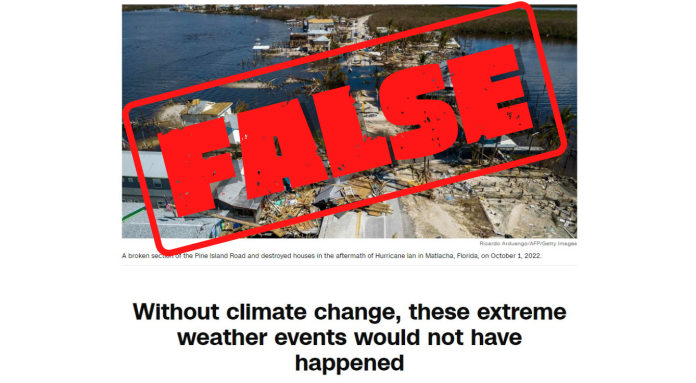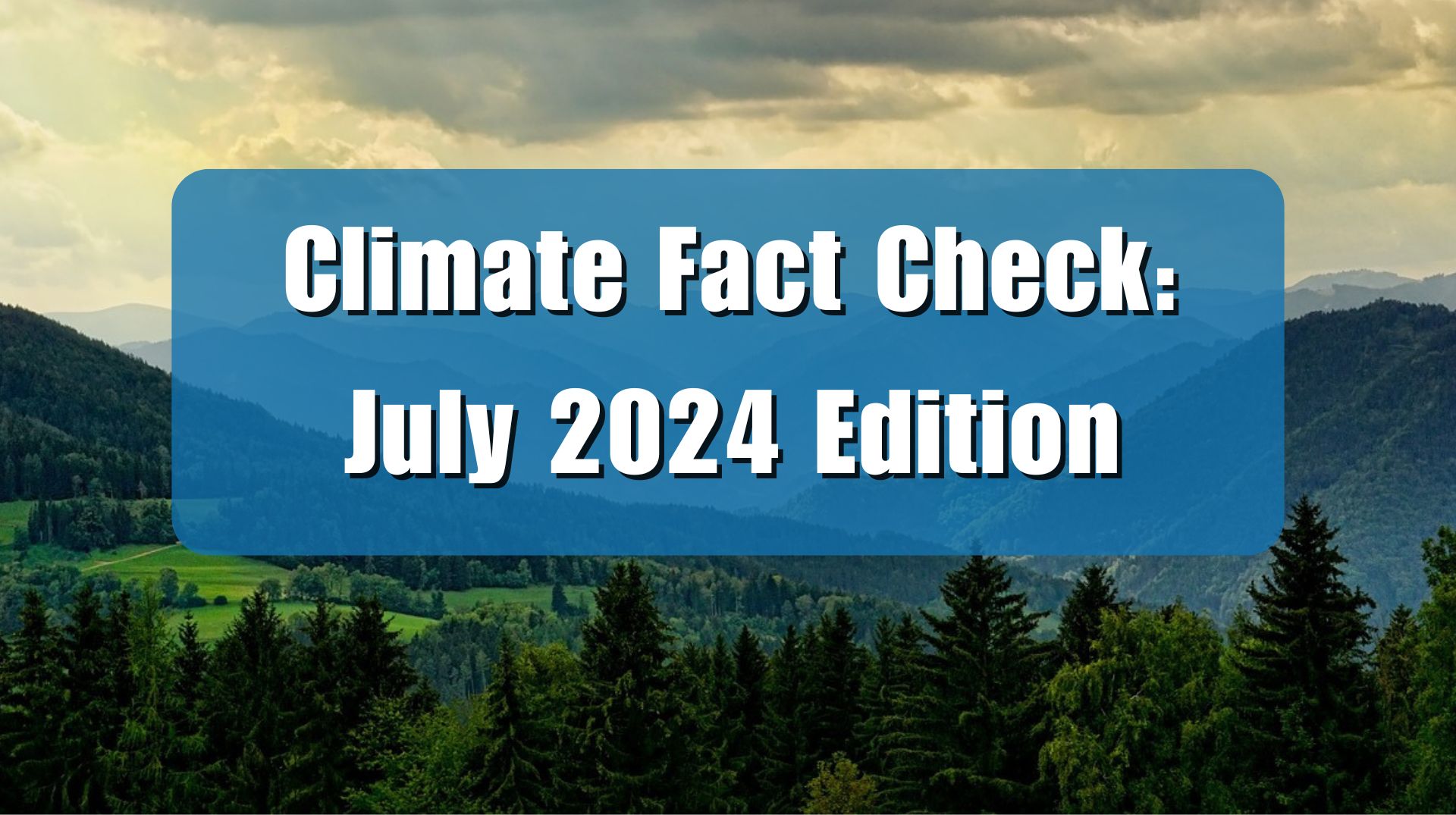A recent article on CNN relies on the opinion of climate attribution groups, claiming that these groups are able to calculate exactly how much impact climate change has had on various weather events. These claims are always false. Attribution claims are unverifiable, untestable, and rely on the presupposition that climate change did make an individual weather event more severe.
The article, “Without climate change, these extreme weather events would not have happened,” relies on the testimony of the World Weather Attribution Initiative, whose members assert that climate change is indeed making weather events more severe, or severe weather more likely. The CNN post goes on to claim that extreme weather like “droughts, storms, wildfires, and heat waves” are becoming more intense and frequent.
But this is false, as Climate at a Glance shows: the data isn’t clear about whether droughts are becoming more intense according to the UN Intergovernmental Panel on Climate Change; storms like hurricanes and tornadoes show no increasing trend; wildfire data in the U.S. indicates forest policy has more to do with them than warming does; and heat anomalies, especially in the United States, show no increasing trend.
The CNN post breaks weather events into two categories, “Impossible events,” which allegedly couldn’t happen without man-made global warming, and “more likely or severe” because of climate change. Both of these categories are nonsense.
Under “impossible,” CNN climate writer Rachel Ramirez cites several heat waves from around the world over the past few years, as well as drought from last year in the northern hemisphere and horn of Africa.
One of the examples she gives is the heat wave from 2021 in the Pacific Northwest, which at the time, all the media touted as evidence of climate change’s impact largely because of the World Weather Attribution Initiative’s say-so. In a Climate Realism post, here, colleague Anthony Watts points out that a single weather event is not evidence of climate change, and quotes from meteorology professor Cliff Mass, Ph.D., who conducted his own analysis of the heat wave alongside historic data. Mass found that there is no increasing trend for record highs in that part of the country over the period of recent warming.
Not a single one of the events listed by CNN was definitively linked to climate change—this link was assumed first, as with all climate attribution studies.
As Climate Realism has previously shown, climate attribution is a game of confirmation bias using computers, not falsifiable science.
Statistician Dr. William Briggs does the best job of describing the flaws of attribution science’s methodology, in a paper compiled by the Global Warming Policy Foundation:
All attribution studies work around the same basic theme. . . . A model of the climate as it does not exist, but which is claimed to represent what the climate would look like had mankind not ‘interfered’ with it, is run many times. The outputs from these runs is examined for some ‘bad’ or ‘extreme’ event, such as higher temperatures or increased numbers of hurricanes making landfall, or rainfall exceeding some amount. The frequency with which these bad events occur in the model is noted. Next, a model of the climate as it is said to now exist is run many times. This model represents global warming. The frequencies from the same bad events in the model are again noted. The frequencies between the models are then compared. If the model of the current climate has a greater frequency of the bad event than the imaginary (called ‘counterfactual’) climate, the event is said to be caused by global warming, in whole or in part.
Attribution that claims to put a percentage likelihood or a percentage of intensity to weather events are not science, as Dr. William Briggs explained, they cannot be checked against existing data.
Although the CNN alarmist writer says the events were “impossible” or “all but impossible,” the events were labelled as “almost impossible,” “virtually impossible,” hundreds of times “more likely,” etc. This is not scientific.
Those classified as “made much more likely or more severe by climate change,” includes the “black summer” fires from Australia in 2019-2020, Hurricane Ian, Western US drought, and the flooding in Pakistan from 2022, Climate Realism has debunked every single one of these as they came up over the years.
For example, in a guest post, “Pakistan’s floods and the climate attribution con,” Dr. David Whitehouse explained that when it came to the flooding in Pakistan, World Weather Attribution Initiative members couldn’t honestly claim that recent warming made the flooding worse than it otherwise would have been.
Dr. Whitehouse wrote:
But then they admit the event is well within the range of historical natural variability pointing out that 2022 was the wettest years since err…1961! And let’s not forget that only a few years ago climate scientists claimed that “our analysis found that the summer monsoon rainfall is decreasing over central South Asia – from south of Pakistan through central India to Bangladesh.”
Pakistan’s flooding was neither unprecedented nor definitively connected to climate change in the attribution scientists’ own research, despite what headlines claimed.
This kind of rapid attribution without referencing historical data isn’t new, attribution scientists will make these claims for every weather event that makes headlines.
The World Weather Attribution team asserts that they use both “real-world data” and computer models, but comparing real data to fictional data is not appropriate or useful, except as confirmation bias. CNN should know better, and take more care when they craft their article titles and content, if they care at all about truth and not just promoting alarm.

















I am an energy engineer and I have long said that the climate change reports are a scam to spend more money so people will get richer and paid for nothing. CO2 is a good thing. Our climate is more stable than it has been in thousands of years. I am sure we will hear more from the climate fatalist. A rule of thumb is “if it has happened in the last hundred years”, it is not climate change and that includes the heat wave that is occurring in the USA now.